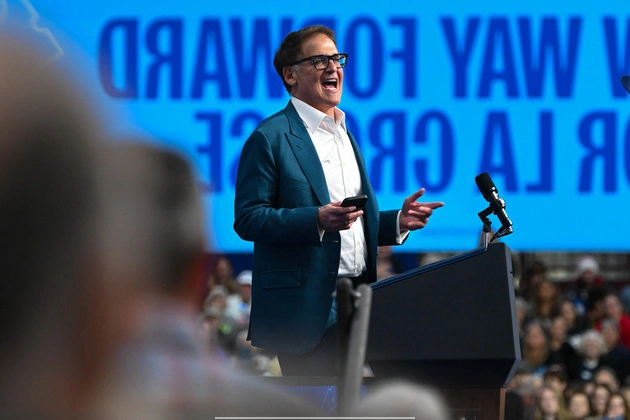
Billionaire business mogul Mark Cuban is on a mission to revolutionize tech innovation and government efficiency, aiming to surpass even the achievements of Elon Musk. Cuban is actively engaging with former and current federal staffers at the General Services Administration and White House to bridge the tech gaps left by recent workforce layoffs, as reported by POLITICO.
The Tech Transformation Initiative
In his pursuit, Cuban is seeking to support new companies that can provide essential technology skills back to the government. This initiative comes in response to the downsizing and terminations that affected key government tech units like GSA’s 18F and the US Digital Service.
Cuban’s ambitious goal is to surpass Elon Musk’s innovative prowess by leveraging untapped talent and expertise. With a focus on profitability, Cuban plans to introduce a tech company that offers specialized services tailored to government needs, contrasting with the public service ethos traditionally upheld by federal agencies.
The Path to Profitability
While the concept of a profitable tech company in the federal sector may seem challenging, Cuban remains undeterred. Federal contracting constraints pose significant hurdles, with agencies dictating project outsourcing and financing. The recent dissolution of 18F further complicates matters, highlighting financial shortfalls and administrative shifts.
Despite skepticism from White House officials and industry insiders, Cuban’s vision extends beyond immediate profitability. His strategic approach involves tapping into local and state contracts to sustain operations until a more conducive political climate emerges.
Challenges and Opportunities Ahead
However, Cuban faces potential resistance from Musk-aligned agencies that could prioritize loyalty over innovation. Musk’s influence within government circles, including key appointments in GSA, poses a formidable challenge to Cuban’s disruptive plans.
Nonetheless, Cuban remains resolute, emphasizing the need for efficiency and expertise to address critical service gaps. By aligning with former 18F personnel and capitalizing on their experience, Cuban aims to position his venture as a cost-effective, high-quality solution for government tech needs.
Looking Towards the Future
As the federal government undergoes workforce and contract restructuring under the Department of Government Efficiency, Cuban’s forward-thinking approach anticipates long-term viability. By nurturing partnerships and adapting to evolving market demands, Cuban’s tech venture could play a pivotal role in reshaping the government’s digital landscape.
In conclusion, Mark Cuban’s venture symbolizes a clash of ideologies between profit-driven innovation and public service mandates. While challenges persist, Cuban’s entrepreneurial spirit and strategic foresight position his tech endeavor as a potential game-changer in government tech innovation.











